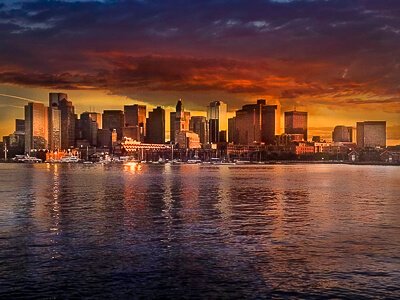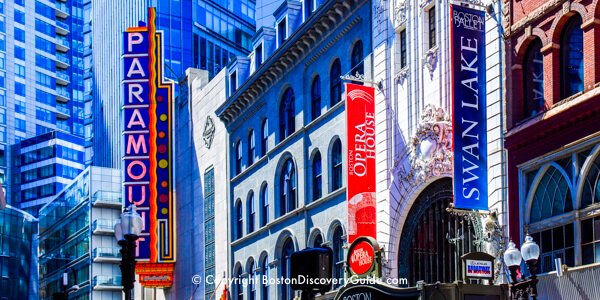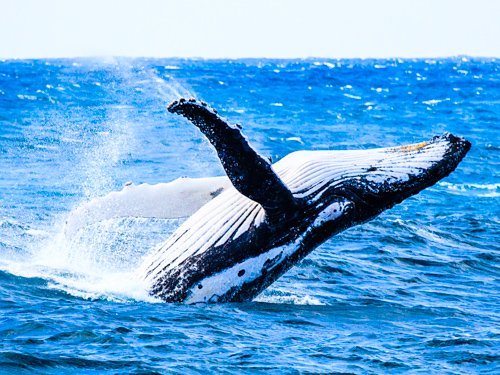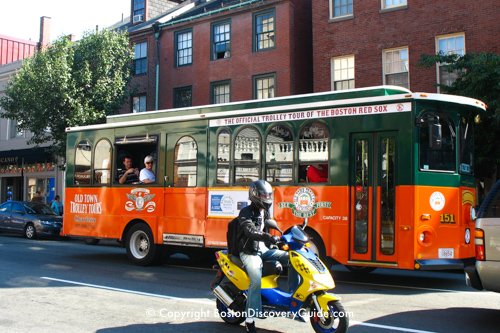The answer to "How bad can Boston weather be on Marathon Day?" is "Bad - very, very bad."
Ideal Boston Marathon weather means a temperature of around 45-50 degrees Fahrenheit (7-10 degrees Celcius), overcast skies, enough moisture in the air to make breathing comfortable and minimize dehydration - and a southwest breeze to act as a tailwind.
Occasionally Boston Marathon race day weather really does hit this ideal mark.
But, unfortunately, not very often.
Right now (April 18, so 3 days before the 2025 race), high temperatures for Boston on Marathon Monday are predicted to be in the high 50s with cloudy conditions - close to optimal for the runners. Fingers crossed!
Check out our historical weather data for Marathon Day (you may be shocked by some of it), a few tips on how to train for it, and the possibility of accommodations (based on what's happened in the past) if extreme conditions happen.
In case you're wondering: The Boston Marathon has always been held on Patriots Day, an official state holiday in Massachusetts and Maine commmerating the start of the American Revolutionary War on April 19, 1775 when the first shots in battle rang out on Lexington Green.
For many decades, both states celebrated Patriots Day on the actual anniversary, the 19th, except when it fell on Sunday. But in 1969, both the holiday and the race officially moved to the third Monday in April, giving residents a 3-day holiday (and an extra day for filing tax returns).
Top photo: Boston Marathon competitors, (c) Boston Discovery Guide
Boston Discovery Guide is a reader-supported publication. When you buy through our links, we may earn a commission at no additional cost for you. Learn more
What Is the Weather on Boston Marathon Day Usually Like?
April weather in Boston usually includes plenty of cool damp gray days, and average April temperatures hit the ideal comfort range more often than not.
But...this is a good example of why "average" can be misleading.
For example, let's look at 2012. Weather forecasters predicted the worst type of weather for a marathon runner: sizzling hot, with temperatures zooming up to 90 (32) degrees and sunny, cloudless skies.
Unfortunately for the runners, they were right . . . even though the thermometer topped out at only 87° (31°).
How often does Boston weather on Marathon Day soar to almost ninety - or above?
More frequently than you might expect.
The reverse also happens: Marathon Day temperatures in the 30s (-1), sometimes accompanied by snow and/or ice.
We get questions periodically about the weather, such as this one from Jim.
We didn't know the answer so we did some research using historic weather data, and we were shocked by what we found.
You may be too.

Is there a record of the high temperatures for each Boston Marathon?
I'm planning to run in the Marathon - so I'd like to see what the high temperature was on each day the Boston Marathon has been run. That way, maybe I'll know what to expect?
Best,
Jim
Seattle
More about the Boston Marathon
Mile-by-mile description of the Marathon route - & best places to see the winners
Boston Marathon Weather History
We dug deep into Boston Marathon weather history archives to find temperature highs to answer Tim's question, expecting not to find any days hotter than around 70 (21) degrees.
After all, April is still usually a cool month in Boston, right?
To our surprise, we discovered that while the 87° (31°) high temperature for 2012 may be atypical, it wasn't unusual and it didn't come close to setting a Marathon Day temperature record.
Keeping in mind that the third Monday in April has fallen anywhere from the 15th through the 22nd of the month since 1969, take a look at these Marathon Day high temperatures for Boston - and prepare yourself for a few surprises:
- 1905 - 100 (38) degrees
- 1907 - Occasional snow
- 1908 - Snowflakes, drizzle
- 1909 - 97 (36) degrees
- 1925 - Cold wind, snowflakes
- 1927 - 84 (29) degrees
- 1952 - 84 (29) degrees
- 1961 - 39 (4) degrees; snow squalls
- 1967 - Snow squalls
- 1970 - 38 (3) degrees; driving rain, sleet
- 1976 - 96 (36) degrees
- 1982 - 68 (20) degrees
- 1987 - 87 (31) degrees; 96% humidity
- 1999 - 68 (20) degrees
- 2000 - 47 (8) degrees
- 2001 - 54 (12) degrees
- 2002 - 56 (13) degrees; heavy mist
- 2003 - 59 (15) degrees
- 2004 - 86 (30) degrees
- 2005 - 66 (19) degrees
- 2006 - 53 (12) degrees
- 2007 - 50 (10) degrees; strong wind, torrential rain
- 2008 - 53 (12) degrees; heavy mist
- 2009 - 47 (8) degrees
- 2010 - 49 (9) degrees
- 2011 - 55 (13) degrees
- 2012 - 87 (31) degrees
- 2013 - 54 (12) degrees
- 2014 - 63 (17) degrees
- 2015 - 44 (7) degrees; driving rain, wind
- 2016 - 61 (16) degrees
- 2017 - 73 (23) degrees
- 2018 - 43 (6) degrees; drenching rain, strong wind
- 2019 - 63 (17) degrees; light to heavy showers, thunderstorms
- 2020 - 60 (16) degrees; very strong wind, thunderstorms with localized lightning; race not held due to Coronovirus pandemic
- 2021 - 51 (11) degrees on what would have been Marathon Day in April - but due to the Coronovirus pandemic, the race was postponed to October 11, which had a high temperature of 59 (15) degrees, early morning drizzle, and mostly cloudy conditions all day
- 2022 - 54 (12) degrees and sunny - perfect for runners and watchers!
- 2023 - 56 (13) degrees and overcast, with a very light breeze - ideal for runners
- 2024 - 69 (21) degrees and sunny; too warm for runners, but perfect for viewers!
No, the 1905 high temperature for Boston is NOT a mistake - it really did soar to 100 degrees, according to the Boston Globe.
And the temperature reached almost that high (97/36 degrees) just four years later in 1909 and then again when it hit 96 (36) degrees almost 70 years later in 1976.
Keep in mind that because the Boston Marathon is held on the third Monday of the month, it falls on slightly different dates each year, ranging from April 15 through April 21.
So the temperatures that you see above are not necessarily the highest temperature ever recorded for those particular dates - they're just the highest for the dates during those years when the date also happened to fall on Marathon Monday.
How to Train for the Boston Marathon's Unpredictable Weather
Given Boston's unpredictable weather and the wide range of high temperatures on Marathon Day, your best bet is to train for extremes so that you'll be prepared for whatever you encounter.
In addition to training in hot and cold weather, try also to train in heavy rain, sleet, snow, strong wind, and high humidity.
Don't forget about the Boston Marathon race course's hilly terrain, especially the hills you'll encounter late in the race. And remember, what makes Heartbreak Hill so difficult is because it's a long, unrelenting upward incline after a series of other hills.
All of these conditions add up to the reason why the Boston Marathon can be challenging!
Can You Expect Any Weather Accommodations for the Boston Marathon?
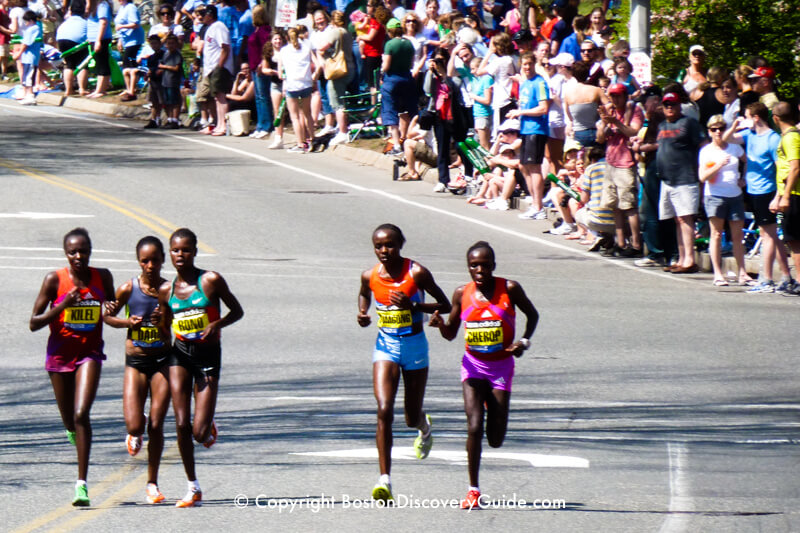
Maybe, but don't count on it.
In recent years, weather accommodations have been made in a few cases:
- In 2007, the start time for the Elite Men's race (where the fastest runners compete) moved to 10am from noon, not just because of the predicted heat (which never reached the predicted high) but primarily because of the punitively high humidity.
- After a volcano erupted in Iceland in late March and again on April 14, 2010, European flights were disrupted and Marathon entrants who could not reach Boston were allowed to defer their entry until the following year.
- When extremely hot weather appears likely, as in 2004 and 2012, the usual number of medical tents will be increased. Typically, about 2-4% of the racers seek non-injury medical attention, but in 2004, with a temperature high of 86° (30°), the total rose to almost 10%, mostly for heat-related reasons.
- Due to the 2012 heat predictions (low 90s, although it only reached 87 degrees), the BAA (the Marathon's sponsor) offered deferrals to the following year to anyone who chose not to run due to the heat. Runners had to elect the deferment BEFORE the race began - no opting for the deferral midway through!
- If the 2020 race had not been cancelled due to the Coronovirus pandemic, it is possible (but not 100% certain) that the strong 65+ mph winds and thunderstorms (which included lightning in localized areas) might have necessitated some accommodations.
Where to Stay for the Marathon: Hotels Overlooking the Route
For the best Boston Marathon views from your room, stay in a hotel over looking the Marathon route, such as the luxurious Lexox Hotel on Boylston Street:
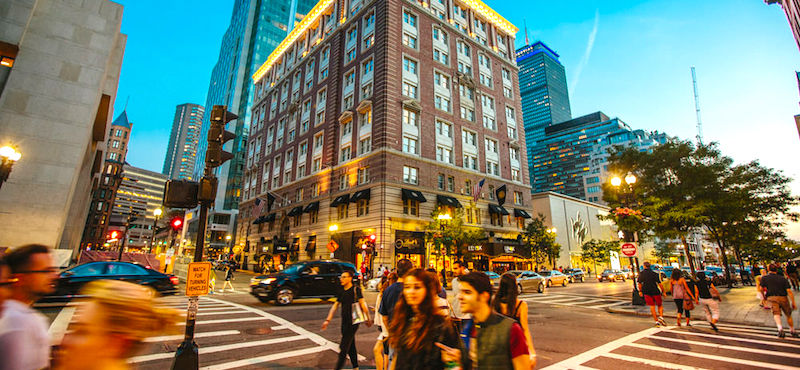
More top hotels near Boston's North End:
Check out more Boston Marathon hotels
Boston Marathon Hotels
Need a hotel for the Boston Marathon? Just enter your dates below, and see available rates and hotels on this hotel map from Booking.com:
Booking.comFun Ways to See Boston during Marathon Weekend
More Articles about the Boston Marathon
Find more of our articles about the Boston Marathon:
- Guide to the Boston Marathon - Everything you need to know
- Boston Marathon Route - Mile-by-mile description about what to expect if you're running and including best places to watch if you're a spectator, plus a map
- Boston Marathon Qualifying Times - See what you need to achieve to qualify
- Best Boston Marathon hotels - For runners and watchers


